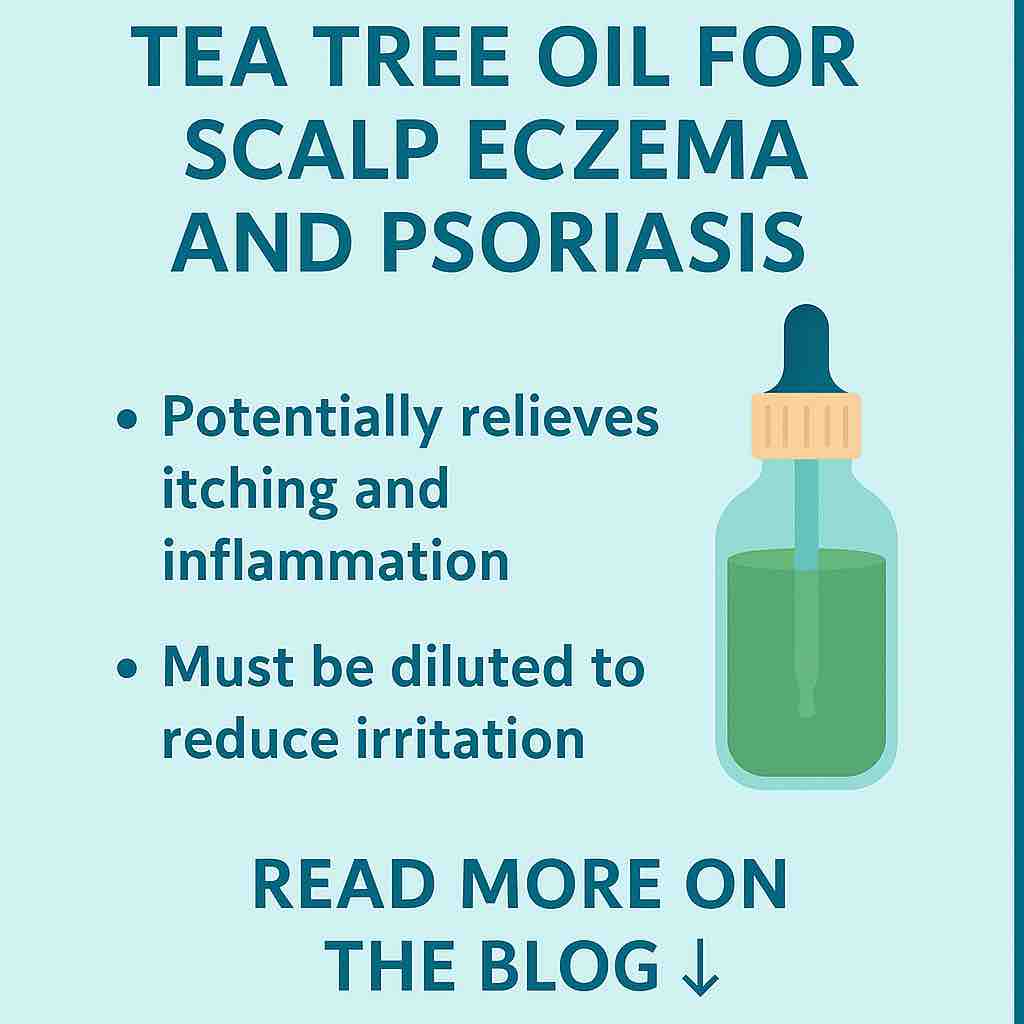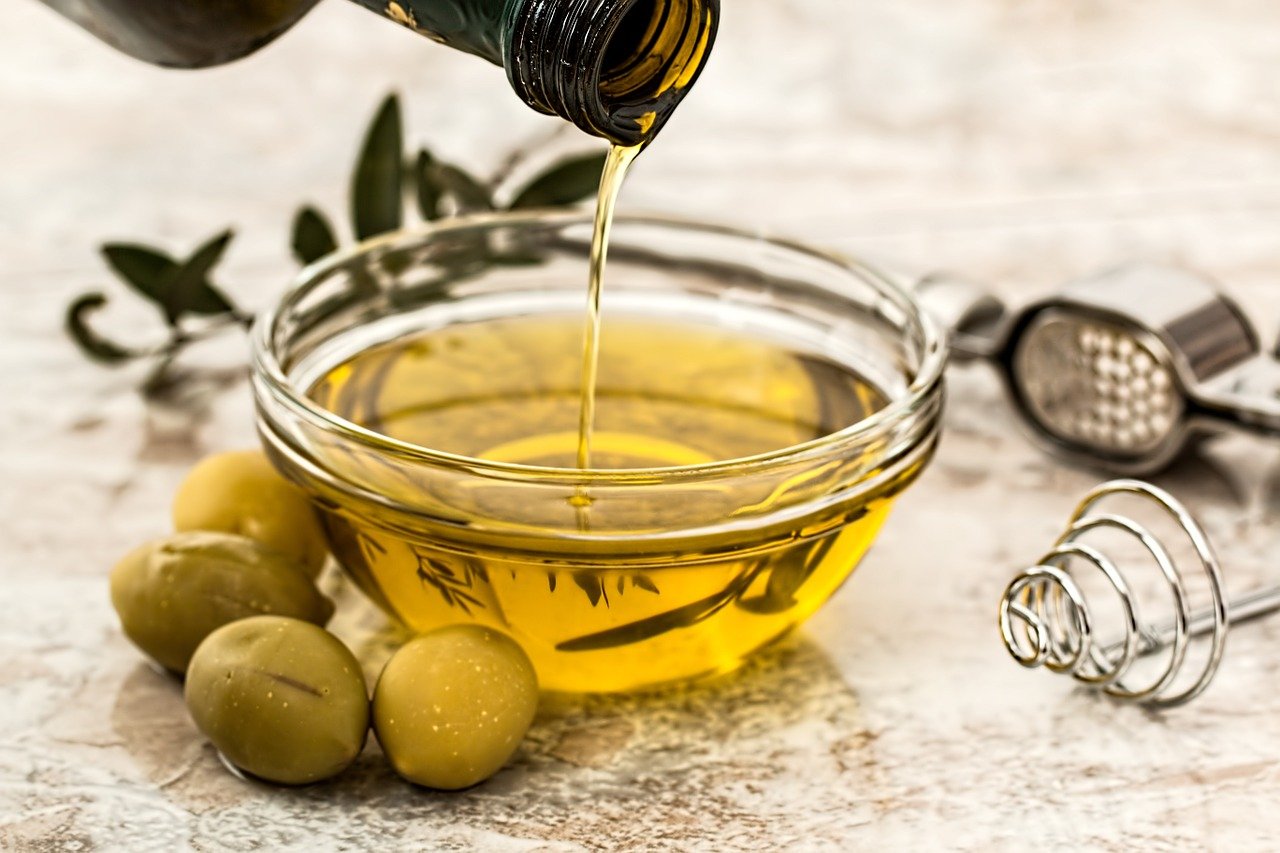
Scalp issues like eczema and psoriasis aren’t just skin-deep. They cause discomfort, affect self-confidence, and often require long-term management. Among the sea of treatments, both medical and natural, one name frequently pops up: Tea Tree Oil. But does it really work? Can this ancient essential oil be a reliable aid for chronic scalp conditions? In this blog, we dive deep into the science, the experiences, and the practical advice around using tea tree oil for scalp eczema and psoriasis.
What is Tea Tree Oil? Tea tree oil is an essential oil derived from the leaves of the Australian plant Melaleuca alternifolia. Known for its pungent scent and powerful properties, it has been used traditionally by Aboriginal communities for its healing abilities. Modern science has confirmed that tea tree oil possesses potent antimicrobial, anti-inflammatory, and antifungal properties, largely thanks to its main active component, terpinen-4-ol.
Understanding Scalp Eczema and Psoriasis Before we delve into tea tree oil, it’s important to understand the conditions it’s supposed to help with:
- Scalp Eczema (Seborrheic Dermatitis): Often appears as greasy, scaly patches and can be triggered by stress, yeast overgrowth, or cold weather.
- Scalp Psoriasis: An autoimmune condition characterized by red, raised patches covered in silvery scales. It’s chronic and often more stubborn than eczema.
Both conditions cause itching, flaking, and inflammation, and both can be exacerbated by microbial infections—something tea tree oil may be well-suited to address.
What Does the Research Say?
- For Scalp Eczema: Several studies highlight tea tree oil’s antifungal action against Malassezia, a yeast commonly associated with seborrheic dermatitis. A 5% tea tree oil shampoo was found in a small trial to reduce dandruff symptoms significantly over four weeks.
- For Psoriasis: Evidence is more anecdotal than clinical. Some users report relief from itchiness and inflammation, though large-scale, peer-reviewed studies are lacking. The National Psoriasis Foundation notes tea tree oil as a complementary option, not a standalone treatment.
While promising, it’s important to note that essential oils affect individuals differently. For some, tea tree oil is a game-changer. For others, it might cause irritation.
How Tea Tree Oil May Help
- Antifungal Action: Targets Malassezia, the yeast involved in dandruff and seborrheic dermatitis.
- Anti-Inflammatory: Reduces swelling and redness via terpinen-4-ol.
- Antimicrobial: May prevent secondary bacterial infections that worsen eczema or psoriasis.
- Cleansing Effects: Helps remove excess oil and dead skin from the scalp.
Risks and Side Effects While tea tree oil is natural, that doesn’t mean it’s risk-free. Potential side effects include:
- Skin irritation or contact dermatitis
- Allergic reactions (especially in sensitive skin)
- Hormonal effects in rare cases (some studies link it to hormonal imbalances when used excessively)
To minimize risks, always do a patch test and never apply undiluted tea tree oil directly to the scalp.
How to Use Tea Tree Oil for Scalp Issues
- Diluted Topical Application: Mix a few drops with a carrier oil (like coconut or jojoba oil) and apply to the scalp. Leave it on for 15-20 minutes before rinsing.
- Tea Tree Oil Shampoo: Look for shampoos with 5% concentration. Use 2-3 times a week.
- Scalp Spritz: Mix diluted tea tree oil in a spray bottle with water and aloe vera gel for a soothing scalp mist.
Always consult your dermatologist before starting any new treatment regimen, especially if you’re already on prescribed medication.
Real User Experiences Online forums and reviews show a mixed bag:
- Positive: Many users find it reduces itchiness and flaking significantly.
- Negative: Some experience increased irritation or dryness, especially with undiluted use.
This variability underlines the need for cautious, individualized use.
Final Thoughts: Is Tea Tree Oil Worth Trying? Tea tree oil offers a natural alternative that may provide relief for scalp eczema and psoriasis, particularly when microbial factors are at play. It won’t work for everyone, and it isn’t a replacement for medical treatment, but when used properly, it can be a valuable part of a broader scalp care routine.
As with any treatment, personal experimentation, informed by research and guided by professional advice, is key.
Have You Tried Tea Tree Oil? We’d love to hear your experiences. Drop a comment below and share what’s worked (or not) for your scalp health journey!
✅ FAQs
1. Can tea tree oil cure scalp eczema or psoriasis?
No, tea tree oil cannot cure these chronic conditions. However, it may help manage symptoms like itching, inflammation, and flaking when used as a complementary treatment.
2. How often should I use tea tree oil on my scalp?
If using a diluted oil blend, 2–3 times per week is generally safe. For shampoos containing tea tree oil, follow product instructions—typically 2–3 times weekly. Overuse can cause irritation.
3. Can I apply tea tree oil directly to my scalp?
No. Tea tree oil must always be diluted with a carrier oil (like coconut, jojoba, or olive oil). Direct application may cause burning, itching, or allergic reactions.
4. Is tea tree oil effective for dandruff caused by seborrheic dermatitis?
Yes, studies have shown that a 5% tea tree oil shampoo can significantly reduce dandruff symptoms caused by seborrheic dermatitis due to its antifungal properties.
5. Are there side effects of using tea tree oil on the scalp?
Possible side effects include irritation, allergic dermatitis, and in rare cases, hormonal disruption. Always do a patch test before applying more broadly.
6. Can I use tea tree oil with other medicated scalp treatments?
Yes, but consult your dermatologist first. Tea tree oil may complement treatments like salicylic acid or corticosteroids, but interactions vary by individual.
7. How do I know if I’m allergic to tea tree oil?
Perform a patch test: apply a diluted drop on your inner arm and wait 24 hours. Redness, itching, or swelling indicates sensitivity or an allergic reaction.
8. What concentration of tea tree oil is best for scalp use?
Products with a 5% concentration are most commonly studied and recommended for scalp-related issues. Always dilute if you’re mixing it yourself.
9. Does tea tree oil help with scalp buildup or clogged follicles?
Yes. Its antimicrobial and cleansing properties can help remove product buildup, excess oil, and dead skin, promoting healthier follicles.
10. Can I use tea tree oil on children’s scalps?
Use with extreme caution. Children are more sensitive to essential oils, and some sources suggest avoiding it altogether in children under 12 unless guided by a healthcare provider.










